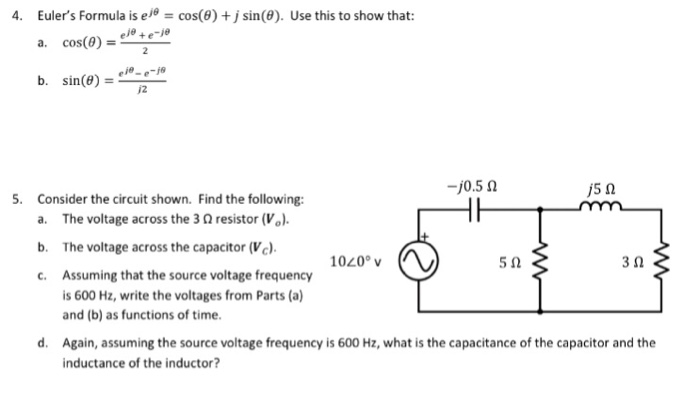The insurance coverage industry is insurance representatives using items on behalf of insurer. Representatives get paid a commission by the insurance provider to sell their products. Some representatives work as brokers, others operate in a group setting or are captive (loyal to one insurance provider). To sell insurance of any kind there are generally 2 requirements. A base income. Commission. A reward or bonus offer. All 3 of these payment techniques define how insurance coverage agents make money. Nevertheless, which payment approaches apply depend on: Agent typeExperienceLocation Insurance coverage representatives are paid in a different way depending on if they are captive or independent. Here's how to inform the distinction between the 2: This type of representative works exclusively for one particular insurance company.
They get leads from the company and represent the products it offers. This type of representative uses items from various insurance coverage business. They do not have an obligation to any one insurance provider and generally work in their own workplace or as part of an independent company. But they do participate in http://mariolwop646.yousher.com/the-only-guide-for-how-to-get-cheap-car-insurance a contract that provides them binding authority to offer insurance plan on the behalf of numerous insurance coverage companies.
Independent representatives can grow their book of organization quicker than captive agents because they are more engaged in their community and offer more personalized service. They can often earn higher commissions however get little to no base wage. With both types of insurance representatives, the specific representative functions as a liaison in between the customer and the insurer.
The payment structure of an insurance coverage agent is affected by where they work. Those who work as a sales agent for one insurance coverage business, representing only that insurance company's items, usually earn money in one of 3 ways: Salary onlySalary plus commissionSalary, commission and benefit Agents who work for an independent insurance coverage company offering items from picked companies generally make a small income and commissions, OR a wage plus a perk if the firm fulfills its objectives.
The 2017 average annual wage for an insurance agent is $49,710 and the hourly wage is $23. 90 per hour, according to the U.S. Department of Labor's Bureau of Labor Statistics, New representatives earn less than $27,180, while those with years in business can make upwards of $125,190. Together with a base wage, captive representatives likewise receive an employer-sponsored advantages bundle, as well as supporting staff, workplace equipment, marketing and advertising efforts.
An agent's base commission depends a number of elements like: The line of insuranceThe variety of new policies soldThe variety of renewing policiesThe commission structure, if any, of the insurance provider or firm Captive agents typically make a 5% to 10% commission for each car and home insurance policy they sell. Each time the policy renews, they receive a recurring commission, which is normally less than the preliminary commission.
Independent agents make more in commission than captive agents due to the fact that they either get no base wage or a really little one. According to the Independent Insurance Agents & Brokers of America, Inc. (IIABA), independent agents usually make the following variety of commissions on these policy types: In between 8% and 15% of a brand-new policy's very first year premium and between 2% and 15% at the policy's renewal.

All About When A Replacement Is Involved In An Insurance Transaction
Given that life and health insurance commissions are front-loaded, representatives typically don't get a commission after the 3rd policy renewal. At times, slave and independent agents may make contingent commissions, which are incentive-based. Insurer or firms may set particular goals for achieving contingent commissions, such as: Reaching a particular volume of businessPolicy retentionGrowing a specific line of insuranceOverall success In general, no matter the type of representative, the higher an agent's book of business, the more commissions he or she earns.
Many U.S. states have disclosure laws that require agents and brokers to offer this information. Some insurance representatives may get quarterly, semiannual, or year-end perks based upon their sales efficiency. For captive representatives, efficiency bonus offers can amount to 20% or more of their earnings. Independent agents usually do not get efficiency benefits unless they work for an independent insurance coverage firm that uses such chances.
Experience matters when it comes to how much insurance coverage representatives can make. For both captive and independent insurance agents, the more years working as an agent, the more customers they get and the more strong their track record ends up being as a relied on representative. This relationship structure equates into brand-new company and continued renewals, increasing an agent's commission from year to year.
Insurance coverage rates are determined by an area's expense of living, the number of accidents take place, the general health of its citizens, the criminal offense rate and other stats. For representatives, place can impact insurance coverage sales due to the fact that: The expense of insurance coverage is so high that many residents would go without it. Individuals are leaving the location due to a high expense of living.
There are more agents in the market than potential customers. There is greater competition in the location. Residents tend to go shopping more online than in your area. The expense of insurance is high, so representatives can make more commission. The expense of insurance coverage is low, so agents don't make as much commission.
So, what representative services are clients getting for their cash? An agent knows all the ins and outs of the insurance products he or she is offering (how to become a successful insurance agent). They use this knowledge to help clients pick the best policy to fulfill their requirements and spending plan - how to become a car insurance agent. Insurance agents are needed to be accredited in each state in which they work.
Some insurance coverage agents have broadened their knowledge of insurance by completing courses and passing test requirements for insurance designations. Amongst the leading classifications are: Qualified Insurance Counselor (CIC) Chartered Life Underwriter (CLU) Chartered Property Casualty Underwriter (CPCU) Commercial Lines Protection Professional (CLCS) Accredited Consultant in Insurance Coverage (AAI) Associate in General Insurance (AINS) Accredited Customer Care Representative (ACSR) Personal Lines Coverage Specialist (PLCS) Associate in Insurance Services (AIS) Healthcare Compliance Professional (HCP) Group Advantages Associate (GBA) Fellow, Medical Insurance Advanced Research Studies (FHIAS) Certified Monetary Planner (CFP) Financial Providers Certified Expert (FSCP) You'll see one or more of these classifications after the insurance coverage representative's name.
How To Find An Independent Insurance Agent Can Be Fun For Anyone
For clients looking for an insurance agent, understanding the payment structure of your agent provides openness and assists build trust. Weigh this information with the agent's professionalism and know-how to develop a trusting relationship.
